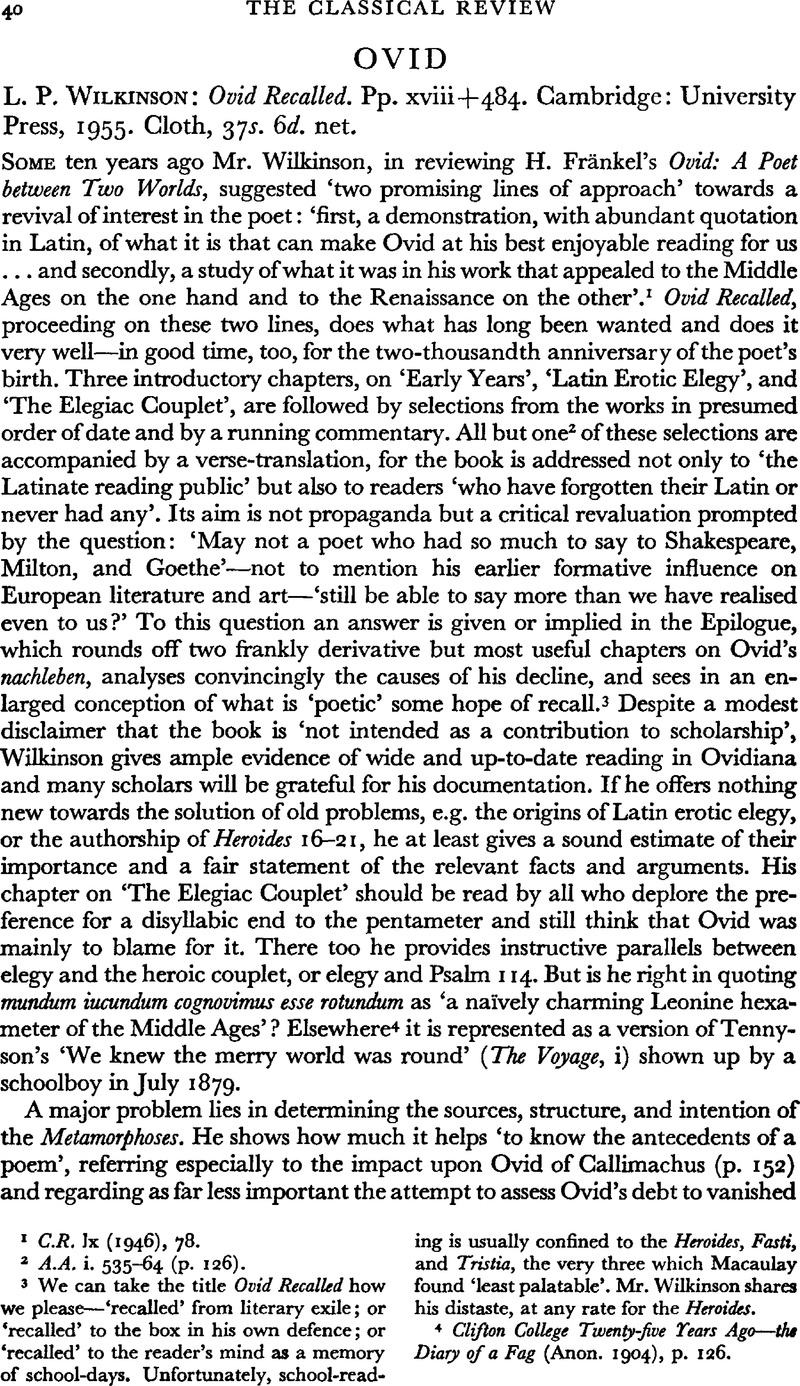No CrossRef data available.
Published online by Cambridge University Press: 13 February 2009

page 40 note 1 C.R. lx (1946), 78.
page 40 note 2 A.A. i. 535–64 (p. 126).
page 40 note 3 We can take the title Ovid Recalled how we please—‘recalled’ from literary exile; or ‘recalled’ to the box in his own defence; or ‘recalled’ to the reader's mind as a memory of school-days. Unfortunately, school-reading is usually confined to the Heroides, Fasti, and Tristia, the very three which Macaulay found ‘least palatable’. Mr. Wilkinson shares his distaste, at any rate for the Heroides.
page 40 note 4 Clifton College Twenty-five Years Ago—the Diary of a Fag (Anon. 1904), p. 126.Google Scholar
page 41 note 1 Pp. 119 (on Art and Nature), 294 (on shocking the respectable). Cf. C.R. lx (1946) 78: ‘the rococo graces of this Oscar Wilde of the Augustan Age’.
page 41 note 2 Cf. P. iii. 1. 23 tristia per vacuos horrent absinthia campos and P. iii. 8. 15.
page 42 note 1 Sen. Contr. ii. 2. 8–11 certainly refer to Ovid as a boy. The same appears to hold for the opening of ii. 2. 12.
page 42 note 2 Cf. Bonner, S. F., Roman Declamation (1949), p. 156: ‘a poet among declaimers and a declaimer among poets’.Google Scholar
page 43 note 1 Op. cit., p. 149.
page 43 note 2 Ibid., p. 155.
page 43 note 3 Cited by von Raumer, S., Die Metapher bei Lucrez, (1893), p. 12.Google Scholar
page 43 note 4 Quoted by Munro on Lucr. v. 993 from Faerie Queene, 2. 8. 16.
page 43 note 5 Cf. The Times Literary Supplement of 21 Oct. 1955, p. 620, referring to H. Frankel's translations.